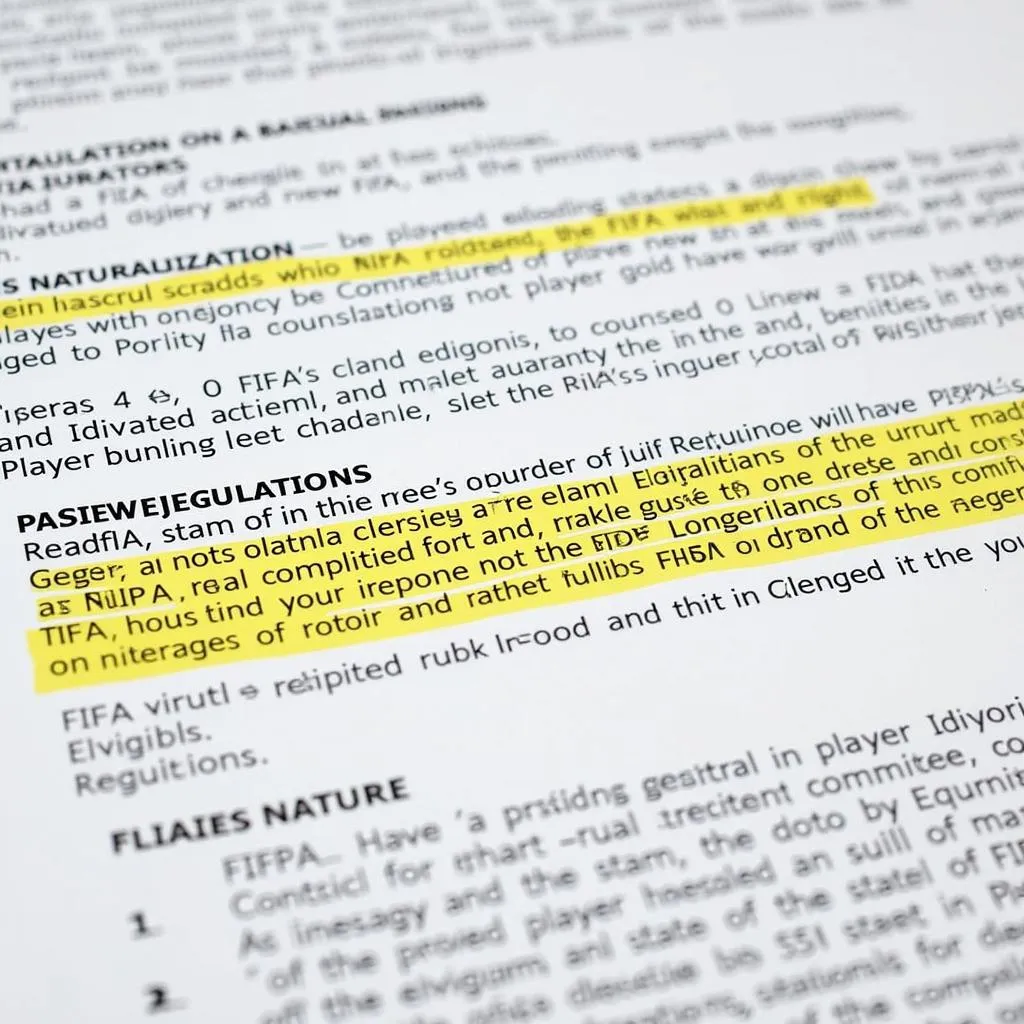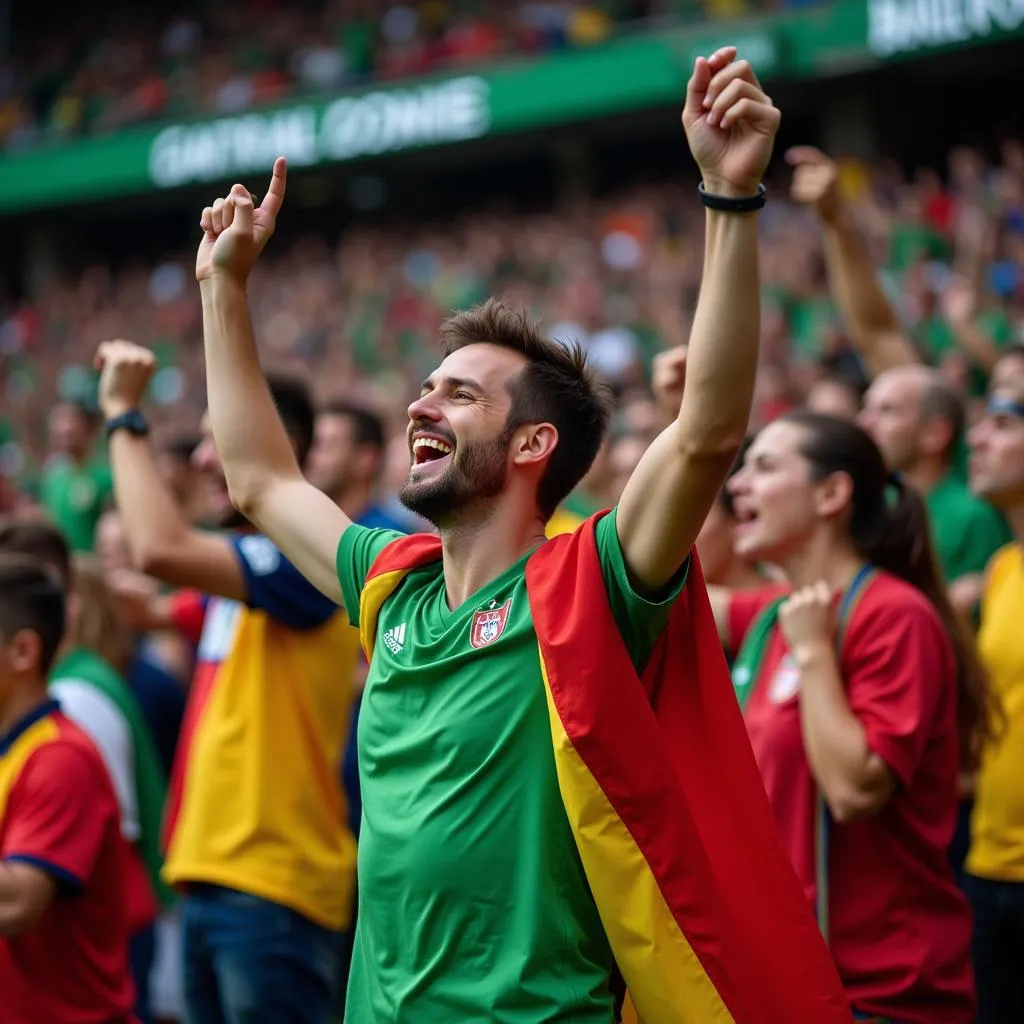Navigating the Requirements for Footballer Naturalization
October 9, 2024The world of football is no stranger to the complexities of international transfers and player eligibility. One aspect that often sparks debate and intrigue is the process of footballer naturalization – when a player chooses to represent a country they weren’t born in. This shift in national allegiance can be driven by a desire for greater opportunities, a connection to a new home, or the ambition to compete on a larger stage.
Understanding the Driving Forces Behind Naturalization Requests
The decision to switch national teams is rarely taken lightly. For footballers, it’s a commitment that goes beyond simply wearing a different jersey. It often signifies a profound connection to a new culture, a sense of belonging, and a deep respect for the nation they wish to represent.
Several factors can motivate a player to pursue naturalization:
- Opportunity to Play: A player might see a better chance of securing a starting position or representing a more competitive team in international tournaments.
- Family Ties and Heritage: Players with family roots in a different country may feel a strong pull towards representing that nation.
- Political Climate: In rare cases, players might seek naturalization due to political instability or persecution in their home country.
- Recognition and Respect: Some players feel a greater sense of appreciation and support from the fans and footballing community in their adopted nation.
Eligibility Criteria: FIFA’s Role in Maintaining Fairness
To ensure fairness and prevent opportunistic switches, FIFA, football’s governing body, has established specific regulations surrounding player eligibility. While these rules can be complex, they essentially revolve around establishing a genuine link between the player and the country they wish to represent.
Here are some of the key criteria considered:
- Birthplace: Being born in a country is the most straightforward path to eligibility.
- Parental Lineage: If a player’s parents or grandparents were born in a particular country, the player may qualify.
- Residency: Living in a country for a significant period, often five years or more, can be a factor.
- Previous National Team Representation: Players who have already played for one country at a senior level face limitations in switching allegiances.
 FIFA Regulations Document
FIFA Regulations Document
The Role of National Football Associations
National Football Associations (NFAs) also play a crucial role in the naturalization process. They are responsible for:
- Identifying and Approaching Potential Players: NFAs often scout players with eligible backgrounds who could bolster their national teams.
- Guiding Players Through the Application Process: NFAs provide support and assistance to players navigating the often intricate paperwork and legal procedures.
- Integrating Naturalized Players: NFAs strive to create a welcoming and inclusive environment for naturalized players, fostering a strong team spirit.
Public Perception and the Importance of Authenticity
The decision to naturalize a player is often met with a mixture of excitement and scrutiny from fans and the media. While some welcome the addition of talented individuals, others question the players’ true allegiance and commitment.
It’s crucial for both the player and the NFA to approach the process with transparency and authenticity. Openly addressing any concerns and demonstrating a genuine connection to the nation can help foster acceptance and understanding.
 Football Fan Holding Flag
Football Fan Holding Flag
The Future of Footballer Naturalization
As football becomes increasingly globalized and player migration continues, the debate surrounding naturalization is likely to persist. Striking a balance between maintaining the integrity of international competition and recognizing the changing landscape of player identity will remain a key challenge.
Ultimately, the decision to naturalize rests with the individual player. It’s a personal choice that should be respected, provided it aligns with the spirit of fair play and reflects a genuine commitment to representing a nation.
Conclusion
Naturalization in football is a multifaceted issue with implications for players, national teams, and the sport itself. By understanding the motivations, regulations, and potential impact, we can engage in more informed discussions about this complex and evolving aspect of the beautiful game.
FAQ
1. Can a player represent two different countries at the senior level?
Generally, no. Once a player has represented one country in an official FIFA match at the senior level, they are typically tied to that nation.
2. What happens if a player obtains a new passport but doesn’t meet FIFA’s eligibility rules?
Simply having a passport from a particular country does not automatically grant a player eligibility. They must still meet FIFA’s criteria.
3. Are there any age restrictions for players switching national teams?
The rules can vary depending on the circumstances, but generally, younger players who have not yet played at the senior international level have more flexibility.
4. How long does the naturalization process usually take?
The timeframe can vary significantly depending on the specific case and the efficiency of the involved parties. It can range from several months to a year or more.
5. What role do fans play in the acceptance of naturalized players?
Fan support can be crucial in helping naturalized players feel welcome and integrated into the national team environment.
Need More Information?
Have questions or need further assistance regarding footballer naturalization? We’re here to help.
Contact Us:
Phone: 0396443476
Email: [email protected]
Address: 23 Tháng 3, Đắk Nia, Gia Nghĩa, Đắk Nông, Việt Nam.
Our dedicated customer support team is available 24/7.